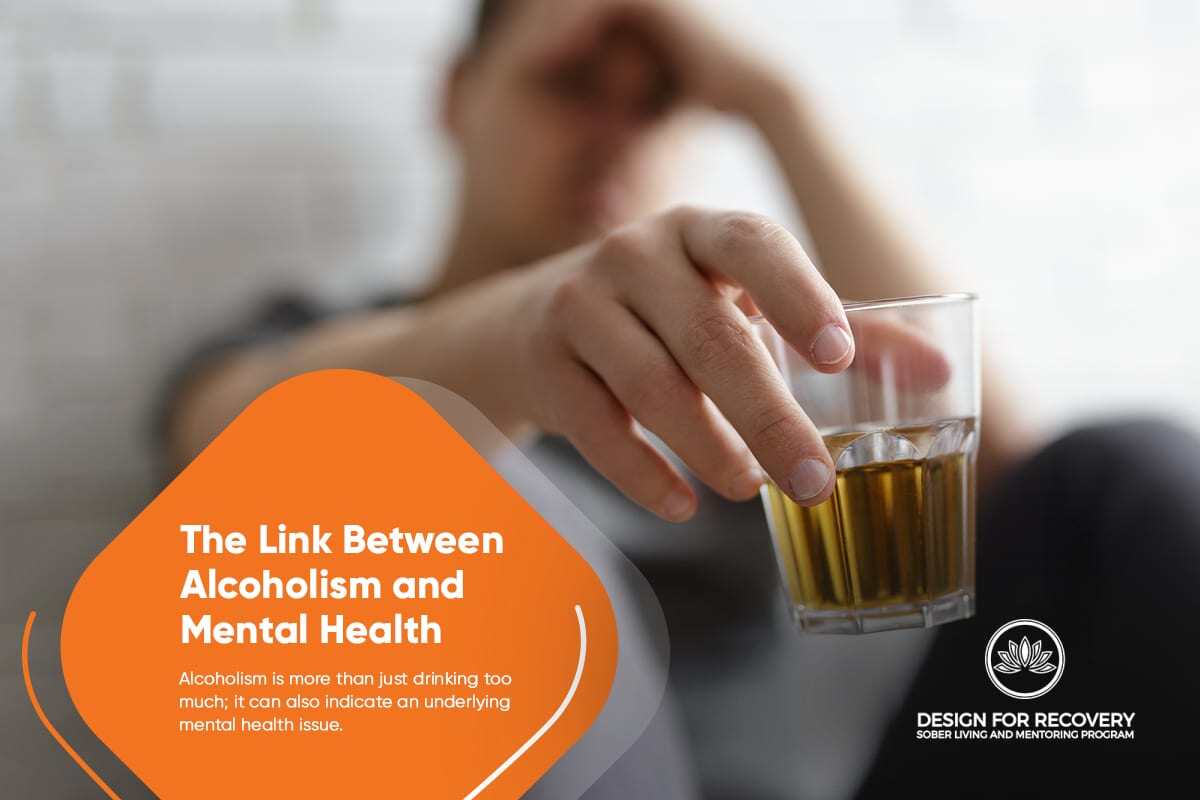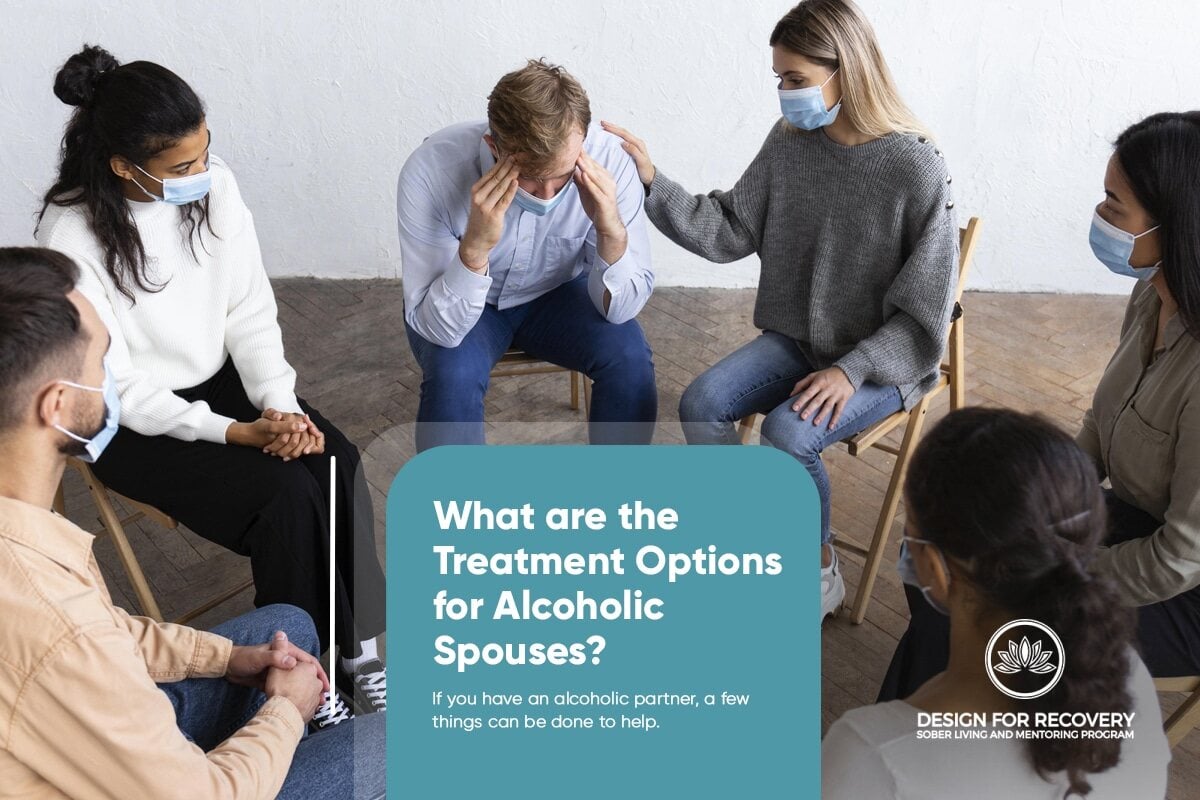Alcoholism is a disease that primarily harms the alcoholic, but it also has negative effects on those around him. This is especially inherent with alcoholic husbands who have a wife and children depending on them.
Statistically, the amount of alcohol consumed by men is higher than that of women. To help an alcoholic husband, it’s important to be aware of the warning signs and take action immediately if necessary.
How to deal with an alcoholic husband?
Living with an alcoholic husband can be incredibly challenging, both emotionally and mentally. By offering encouragement, seeking professional help, and creating a supportive environment, you can play a vital role in helping him overcome alcohol addiction. However, there are steps you can take to support him on his journey towards recovery.

1. Encourage Professional Help:
One of the most crucial steps in supporting an alcoholic husband is encouraging him to seek professional help. This can involve seeing a therapist or counselor specializing in addiction treatment. These professionals can provide personalized guidance and support tailored to his specific needs. Additionally, they can help him address underlying issues that may be contributing to his alcoholism, such as stress, trauma, or mental health disorders.
2. Explore Support Groups:
Support groups such as Alcoholics Anonymous (AA) or SMART Recovery can be invaluable resources for individuals struggling with alcohol addiction. Encourage your husband to attend these meetings to connect with others facing similar challenges and share their experiences. These groups provide a sense of community and understanding that can be instrumental in the recovery process.
3. Provide Emotional Support:
It’s essential to offer your husband emotional support throughout his journey towards recovery. Let him know that you’re there for him and that you believe in his ability to overcome his addiction. However, it’s crucial to strike a balance between support and enabling behavior. Avoid covering up the consequences of his actions or making excuses for his behavior. Instead, encourage him to take responsibility for his actions and seek help when needed.
4. Create a Supportive Environment:
Creating a supportive environment at home is essential for your husband’s recovery. Remove triggers for drinking, such as alcohol in the house, and promote healthy activities that can help him stay occupied and focused on his recovery goals. This may involve engaging in hobbies together, spending quality time as a family, or participating in outdoor activities that promote physical and mental well-being.
5. Educate and Advocate:
Educate your husband about the harmful effects of alcoholism on his health, relationships, and overall well-being. Help him understand the importance of seeking treatment and taking proactive steps towards recovery. Additionally, advocate for him by researching treatment options and connecting him with resources and support networks that can assist him on his journey.
Call Design for Recovery to Begin Your Healing Journey!
Reach out to our team to discuss sober living options and next steps toward a healthier routine.
6. Be Patient and Persistent:
Recovery from alcohol addiction is a journey that takes time, patience, and persistence. Be patient with your husband and understand that there may be setbacks and relapses along the way. Offer unwavering support and encouragement, and remind him that you’re in this together.
Supporting an alcoholic husband on the path to recovery is not easy, but it’s incredibly important. By encouraging professional help, exploring support groups, providing emotional support, creating a supportive environment, educating and advocating, and being patient and persistent, you can help your husband overcome alcohol addiction and rebuild a healthier, happier life together. Remember, recovery is possible, and your support can make all the difference.
What are the Factors Influencing Alcoholism in Husbands?

Alcoholism in husbands can be a devastating issue for any family. Many contributing factors lead to excessive alcohol use, such as genetics, social influences, and mental health issues. Knowing the root causes of your husband’s drinking can help you understand him better and make informed decisions about handling his behavior.
Genetics
Research suggests that alcoholism can be inherited, but it’s not always guaranteed. Specific genes may make someone more vulnerable to the effects of alcohol, including how quickly they become dependent upon it and how difficult it is for them to quit.
Mental Health Issues
Alcoholism in husbands can often be related to underlying mental health issues such as depression or anxiety. When someone is struggling with emotional distress, they may turn to alcohol as a way of self-medicating and numbing the pain. If your husband is having difficulty managing his emotions, getting him help from a mental health professional is important before things worsen.
Coping Mechanisms
It can be difficult to watch someone you love struggle with addiction. However, some strategies can help make the situation more manageable. Encouraging your husband to seek professional help and providing support throughout his journey can be beneficial. Establishing clear boundaries about alcohol consumption in your home is also important for setting expectations and protecting yourself from possible harm.
What are the Signs of an Alcoholic Husband?

When you’re married, it’s important to be aware of the signs that your spouse may be struggling with alcohol addiction. Here are some warning signs to look out for if you think your husband may have a drinking problem:
Isolating themselves from family members and friends:
If your husband seems to be avoiding social events or cutting down on his daily interactions with loved ones, this could indicate an alcohol problem.
Denying their drinking:
If your husband is defensive about his drinking habits and denies having a problem even when confronted, that could indicate dependence.
Making excuses to drink:
Alcoholics may justify their behavior by saying, “I’m just having a few beers with friends” or “I need to celebrate this milestone.”
Becoming aggressive or violent:
If your husband exhibits outbursts of anger and violence when drinking, it could be a sign that they are struggling with an addiction.
Loss of interest in activities:
When someone is deep into their alcoholism, they may become indifferent and lose interest in activities that used to bring them joy.
Mixing alcohol with other drugs:
Sometimes, when alcoholism gets out of hand, the user mixes alcohol with other drugs for an increased effect. This can be very dangerous and potentially fatal.
If you are concerned about your husband’s drinking habits, seeking professional help for him as soon as possible is important. A doctor or mental health professional can assess the situation and advise on the best action.
Contact Design for Recovery Today!
Fill out our quick form to connect with a peer mentor and learn how our sober living community supports accountability, structure, and personal growth in recovery.
Understanding the Family Dynamics of Having an Alcoholic Husband

Having an alcoholic husband can be extremely difficult for a woman and her family. it’s important to understand the dynamics of living with an alcohol-dependent spouse and how it affects everyone in the household. Some potential issues may arise, and these should be discussed openly so all family members can feel supported.
It’s important to understand the impact that alcohol addiction has on an individual. There are many risks associated with alcohol abuse. Someone with alcoholism may have difficulty controlling their drinking, leading to unstable behavior and potential financial or physical problems. They may also become isolated from family and friends due to their addiction.
You also need to recognize the effects that having an alcoholic husband can have on the rest of the family. Children may become confused or embarrassed about their father’s behavior, and the wife may feel powerless and frustrated. To cope with these difficult emotions, everyone in the family must find a way to express their feelings and get support from others.
Living with an alcoholic partner can be a difficult experience, but it’s important to remember that there are ways of coping and getting support. It may take time, patience, understanding, and effort from all family members to help an alcohol-dependent spouse who is trying to recover from alcoholism. With perseverance and dedication, families can live harmoniously despite having an alcoholic husband.
The Link Between Alcoholism and Mental Health

Alcoholism is more than just drinking too much; it can also indicate an underlying mental health issue. Research has shown that alcoholism and other forms of substance abuse are often linked to depression, anxiety, post-traumatic stress disorder (PTSD), bipolar disorder, and other mental health conditions. Alcohol use can cause and worsen existing mental health issues, making it even harder to manage them.
There is also the issue that people with alcohol use disorders might mix their mental health medication with their drinking habits. For example, if the user were to mix Alcohol and Xanax, the results would be much worse than the common drug abuse of alcohol. Then, if there are any underlying mental health issues that your alcoholic husband is facing, they need to be addressed.
It’s important to note that alcohol use disorder can also directly affect an individual’s relationships and family dynamics. For example, individuals with alcohol use disorder may become verbally or physically abusive towards their partners, leading to deep trust issues. Alcohol-related financial problems could also lead to marital stress and arguments.
How to Talk To An Alcoholic Spouse?

Confronting an alcoholic husband can be a difficult conversation to have, and it’s often one that many spouses are hesitant to start. It’s important to remember that your spouse is not the problem – their illness is. A productive talk can help you address your partner’s drinking, convince them to undergo alcohol treatment, and protect your own health.
There are some steps you should take before the discussion begins to make sure it’s as productive as possible:
- Research the topic: The more knowledge you have about alcoholism, the better prepared you can be for the conversation.
- Write down your concerns: As difficult as it may be, writing your concerns regarding your spouse’s drinking will help you stay focused during the talk.
- Keep an open mind: Alcoholism is a disease, and it’s important to remember that the behavior of an alcoholic is not always in their control.
- Set a time: Make sure you and your spouse have plenty of time for the conversation to discuss all aspects of the issue without any distractions or pressure.
Once you’ve taken these steps, it’s time to start the conversation. You should explain to your spouse how their drinking affects not only them but you and your family as well.
Be prepared for the possibility that your spouse may deny they have a problem or try to make excuses for their behavior. Remember that it’s okay to be firm with them about the need for treatment; if needed, it’s often helpful to demonstrate the reality of the situation.
What are the Treatment Options for Alcoholic Spouses?

If you have an alcoholic partner, a few things can be done to help. It’s important to remember that alcoholism is a chronic illness that cannot be cured by sheer willpower alone. Treatment options vary depending on the individual’s needs and situation.
Alcoholics Anonymous (AA)
Alcoholics Anonymous (AA) is the most common and widely known method for treating alcoholism. AA meetings are held in local communities across the country and provide a supportive environment for individuals to come together and share their experiences with addiction. These meetings often focus on helping members stay sober and providing emotional support.
Cognitive Behavioral Therapy (CBT)
Cognitive Behavioral Therapy (CBT) is another treatment option for alcoholism. This therapy focuses on helping individuals identify and change the thought patterns that lead to drinking. Through CBT, people can learn how to better manage their cravings and develop positive coping skills for dealing with life’s stressors.
Medication Assisted Treatment (MAT)
Medication Assisted Treatment (MAT) is a form of alcoholism treatment that combines medication with counseling and other supportive treatments. MAT can help reduce cravings and withdrawal symptoms, as well as helping individuals to stay sober.
Professional Support Groups
Professional support groups are another option for those struggling with alcoholism. These groups provide necessary resources and support to help individuals learn new skills, cope with emotional issues, and maintain sobriety. Professional support groups typically meet regularly, allowing members to benefit from the collective wisdom of the group.
12-Step Programs
12-step programs such as Alcoholics Anonymous (AA) are one of the most widely known methods for treating alcoholism. These programs focus on a spiritual approach to recovery and allow individuals to share their experiences and connect with others. 12-step programs also typically have meetings that allow members to build strong support networks.
Regardless of the treatment type chosen, it’s important to remember that recovery from alcohol abuse takes time and perseverance. Individuals can work towards a healthier and happier life with patience, courage, and support.
- How to deal with an alcoholic husband?
- 1. Encourage Professional Help:
- 2. Explore Support Groups:
- 3. Provide Emotional Support:
- 4. Create a Supportive Environment:
- 5. Educate and Advocate:
- 6. Be Patient and Persistent:
- What are the Factors Influencing Alcoholism in Husbands?
- Genetics
- Social Influences
- Mental Health Issues
- Coping Mechanisms
- What are the Signs of an Alcoholic Husband?
- Understanding the Family Dynamics of Having an Alcoholic Husband
- The Link Between Alcoholism and Mental Health
- How to Talk To An Alcoholic Spouse?
- What are the Treatment Options for Alcoholic Spouses?
- Alcoholics Anonymous (AA)
- Cognitive Behavioral Therapy (CBT)
- Medication Assisted Treatment (MAT)
- Professional Support Groups
- 12-Step Programs
Begin Lasting Sobriety Now!
Frequently Asked Questions
If you’re concerned about your husband’s drinking, there are steps you can take. Start by communicating with him. Have an honest conversation and express your feelings and concerns non-confrontational way. You can encourage him to seek help from a doctor or addiction specialist, attend Alcoholics Anonymous meetings, or join a support group. You can also suggest healthier activities such as taking classes, going to the gym, or volunteering. Consider involving family and friends for additional support.
Dealing with an alcoholic spouse is difficult and emotionally draining. It’s important to remember that addiction is not your fault, and you are not alone. Taking care of yourself should be a priority, so ensure you have a strong support system. Seek counseling or find an online forum to talk with others who understand your situation. You can also attend Al-Anon meetings, specialized support groups for family members of alcoholics.
If your spouse doesn’t want help, you may need to consider other options. It’s important to remember that you cannot “fix” the problem — only your spouse can take the necessary steps toward recovery. You can try talking with them again and expressing your concerns differently. If they still refuse, you may have to set limits or consider separating from him if the situation is serious enough.
Many helpful resources are available online for people dealing with an alcoholic spouse. You can find support groups on sites like Meetup and information from organizations like the National Institute on Alcohol Abuse and Alcoholism (NIAAA). Many addiction treatment centers also provide counseling for family members of alcoholics.
It’s common for spouses who abuse alcohol to be physically abusive toward their family members. This is because alcohol clouds judgment and can bring out the worst in a person when they consume too much frequently. Increased aggression is one of the signs that your husband needs help with his alcohol addiction.
It’s important to remember that recovery from alcoholism is a long process, and it may take time for your child’s father to make meaningful progress. Continue showing your child unconditional love and support while encouraging them to practice self-care. You may also want to look into support programs or other resources that can help your child cope with the situation. Your child and their father can overcome this difficult time with patience and understanding.
- Rehm J. (2011). The risks associated with alcohol use and alcoholism. Alcohol research & health: the journal of the National Institute on Alcohol Abuse and Alcoholism, 34(2), 135–143.
- Carroll, K. M., & Kiluk, B. D. (2017). Cognitive behavioral interventions for alcohol and drug use disorders: Through the stage model and back again. Psychology of addictive behaviors: journal of the Society of Psychologists in Addictive Behaviors, 31(8), 847–861. https://doi.org/10.1037/adb0000311
- Schuckit, M. A., Clarke, D. F., Smith, T. L., & Mendoza, L. A. (2020). Characteristics associated with denial of problem drinking among two generations of individuals with alcohol use disorders. Drug and alcohol dependence, 217, 108274. https://doi.org/10.1016/j.drugalcdep.2020.108274
- Sharma, N., Sharma, S., Ghai, S., Basu, D., Kumari, D., Singh, D., & Kaur, G. (2016). Living with an alcoholic partner: Problems faced and coping strategies used by wives of alcoholic clients. Industrial psychiatry journal, 25(1), 65–71. https://doi.org/10.4103/0972-6748.196053
- Parekh, A., Tagat, A., Kapoor, H., & Nadkarni, A. (2022). The Effects of Husbands’ Alcohol Consumption and Women’s Empowerment on Intimate Partner Violence in India. Journal of interpersonal violence, 37(13-14), NP11066–NP11088. https://doi.org/10.1177/0886260521991304
- Edenberg, H. J., & Foroud, T. (2013). Genetics and alcoholism. Nature reviews. Gastroenterology & hepatology, 10(8), 487–494. https://doi.org/10.1038/nrgastro.2013.86







A husband’s social environment plays an important role in his drinking habits. If he’s surrounded by people who use or abuse alcohol, it can encourage him to do the same. The more he sees others drinking, the less disgrace there is around excessive consumption and the more likely he is to join.